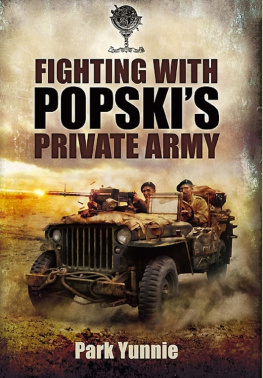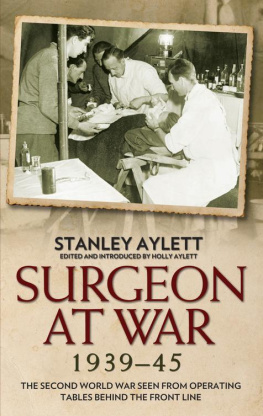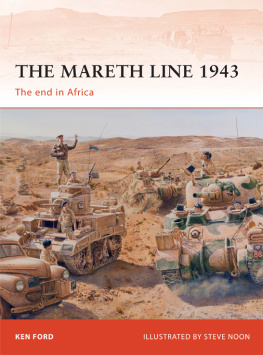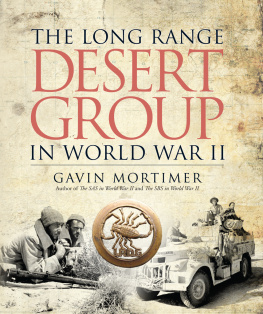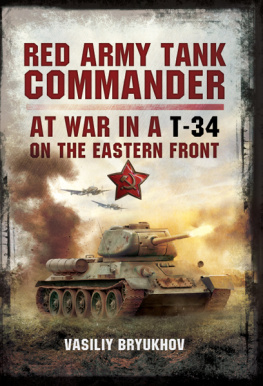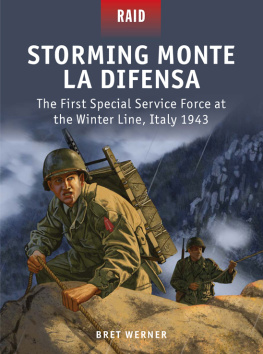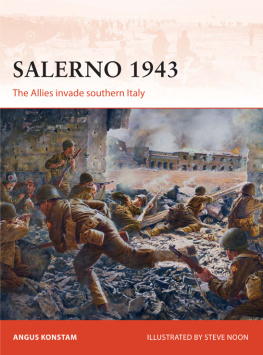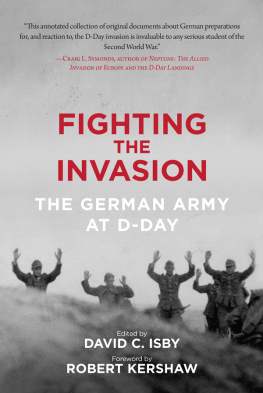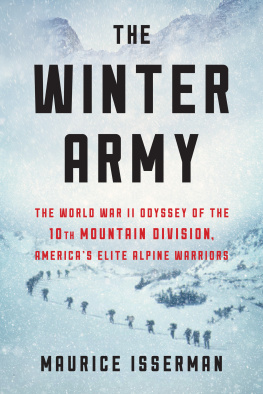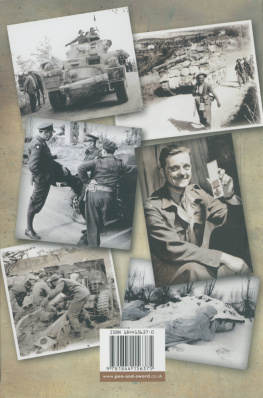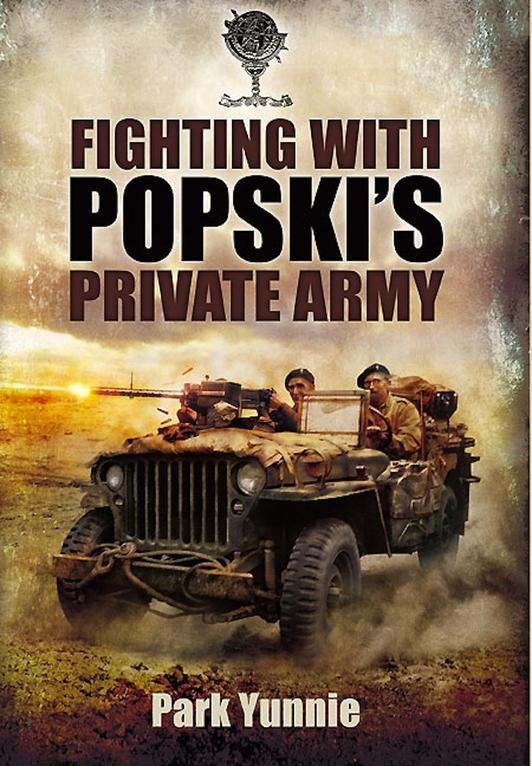At the close of World War Two, my father was unable to settle down in post-war England with all its food rationing. He refers to his fear of going home to the peace in his book whilst still in Italy. Still keen for adventure, he got involved in the rescue of a Czech family just prior to the communist take-over in Czechoslovakia.
He brought his family out to South Africa in 1949, landing at Cape Town a period I, as no more than a toddler, can barely recall. Homesick for his P.P.A. jeep, Bob bought one with which to drive to the Transvaal (now Mpumalanga). He farmed for a while near Amersfoort before moving to Natal (now Kwa Zulu Natal), where he managed a farm in the Karkloof district. He was innovative in his application of crop rotation and hay making and had several articles on his successes published in the Farmers Weekly magazine and the Natal Witness newspaper.
He later moved to Howick in order to practise as a Doctor of Naturopathy. He became well known in the field, and provided relief for sufferers from arthritis and other complaints where conventional medicine had failed. He published a book on the subject entitled The Cause and Cure of Disease.
Following this publishing success, Bob made the decision to rewrite his war memoirs and have them published. (His first attempt, Jeep Fever , had failed to find a publisher.) To fulfil this endeavour, Bob moved again and set about his task with characteristic zeal. I recall him travelling to his office in Durban on a bus so that he could write and wouldnt waste the time driving! He was a very good organiser, and once he had things arranged and working to his satisfaction he would again seek new challenges and want to move on. In late 1958 he left on a trip through Africa to Europe and London, where his manuscript was to be published. Warriors on Wheels, by Park Yunnie of Popskis Private Army, appeared in print the following year.
In 1961, still restless for adventure, he joined the so-called white mercenaries fighting communism in the new Congo Republic. Here a civil war had developed between provinces, leading to the secession of the Katanga region. Rob was a member of the Kalondjust Army in South Kasai, employed to form a group whose key function was to patrol intensively. In late March 1961, he went out on a peacekeeping mission to a village called Kamponde, to visit two chiefs of the Kanioukas tribe in the Territoire de Dibaya. The purpose was to avert a clash between the two parties. On the return journey to Bakwanga his patrol was ambushed. He escaped from the ambushers and made his way on foot to Tshiculudumba by Poygna. He was again caught, and executed two days later by the Administrator of the Territory. One year passed before we, his family, were notified of Bobs death. To this day, I have no idea where he is buried.
A line of military vehicles wound its way across the Libyan Desert, bound for the Oasis of Kufra. Popski sat at the wheel of the leading jeep, his eyes on the moving shadow of the sun-compass clamped to the instrument panel in front. In the seat beside him, Bell, his gunner-driver, sat with pencil and notepad, logging their route. Ahead of them, dancing in the heat haze, fantastic shapes of sand and rock marked the ragged escarpment of the Gilf Kebir.
Popski glanced at the speedometer and shook his head.
Give me the map board, Bell.
Bell lifted the map board from his knees and apprehensively handed it to Popski. Navigation wasnt Bells strong point; he felt ill at ease.
Popski looked at the grubby log on the map board and from the grubby log to Bell.
Do you know what youre doing, Bell?
Driver Bell went red in the face.
N-not really, sir, he stammered.
Then why the hell didnt you tell me? Popski exploded. Youre here to learn. If you dont understand a thing, ask.
Bell looked sheepish.
Yes, sir, he said meekly.
Popski held up a sunburned hand and the line of vehicles halted. He wheeled his jeep and drove to the end of the column, braking level with the last jeep. I looked at him expectantly.
Yes, Popski?
Were wrong somewhere, Bob. According to the speedometer reading we should be in the gap by now. Theres no sign of it. Either the bearings wrong or Ive made a mistake somewhere. Stay here till I make a reconnaissance.
O.K., Popski.
Popski revved away in a rising cloud of dust. I called to Sergeant Waterson in the next jeep.
Brew up, Sarge. Were waiting.
Sergeant Waterson cocked a blue eye in the direction of the nearest 3-tonner and swung from his jeep.
Shay, Mohammed, he bawled to the Senussi guide perched on top of the load.
Mohammed Mustapha grinned, showing perfect white teeth.
Aywah, he answered, and slid off the truck.
Driver Davies jumped down and from the back of the 3-tonner lifted a perforated petrol tin, which he scooped half full with sand, poured petrol over it and threw in a lighted match. The contents took fire with a swoosh and Davies shielded his face from the flame.
Driver Weldon jumped from the driving seat of the other 3-tonner, poured water into a blackened tea can and stuck it on top of the fire; Sergeant Waterson reached over the tailboard and drew out a tin of condensed milk. Catch! he shouted to the group by the fire and tossed it through the air. Weldon cupped his hands and caught it neatly, like a cricketer catching a ball.
When the water boiled, Sergeant Waterson threw in a handful of tea, stirred the contents with a stick, lifted the can off the fire and tapped it with the stick to make the tea-leaves sink to the bottom; the tinny sound echoed strangely in the still desert air. Driver Weldon jabbed two holes in the top of the condensed milk tin with the spike of his jackknife and poured a thick spout of milk into the tea.
Come and get it, Waterson yelled.
We all grabbed our enamel mugs and gathered round the tea can.
Whats the form, sir? Waterson asked. Bearings wrong. Were too far north, I replied between gulps of tea. Popskis gone to look for tracks.
We stood in a group in the blistering sun, drinking tea. The desert was all about us, a silent, heat-filled waste of sand shimmering under a cloudless sky. Nothing moved but the dancing mirage; apart from ourselves there wasnt a living thing for hundreds of empty miles. We were five days out from Cairo, halted on a wrong bearing, 400 miles from Kufra; lost.
In the absence of its commander, I surveyed Popskis Private Army. It wasnt much to look at three small jeeps and two big 3-tonners, one officer (myself), a dozen men, three Senussi Arabs; a hastily recruited, raw, untrained and untried unit. Popski only had any real desert experience. The rest of us were just tyros; keenness, willingness to learn, our only assets.
I looked at the low-slung, racy jeeps with their welded array of water and petrol can brackets, their twin-mounted Vickers machine-guns, the grooved yellow sand channels clamped to the sides. I looked at the overloaded 3-ton Chevrolet trucks with their sawn-off driving cabins and the single machine-gun mounted in front. I looked at the men, at Sergeant Waterson from the Kings Dragoon Guards with his piercing blue eye staring from under the brim of the peaked New Zealanders hat shading his face from the sun; at Corporal Locke with the piratical black patch over one eye; at Driver Davies with the baggy shorts a size too big for his waist; at Driver Weldon with the scrubby beginnings of a beard on his chin; at little Jock Welsh, the fitter from R.E.M.E.; at Petrie, our navigator, a thoughtful young man who lived with the stars; at Bill Wilson, my driver, desperately keen to make good; at Mohammed Mustapha, at Abdel Salem Othman, at Yunes Yusef Abdallah, our three Senussi guides crouched over a fire some distance apart, brewing their sweet Arab tea. A motley crew.

